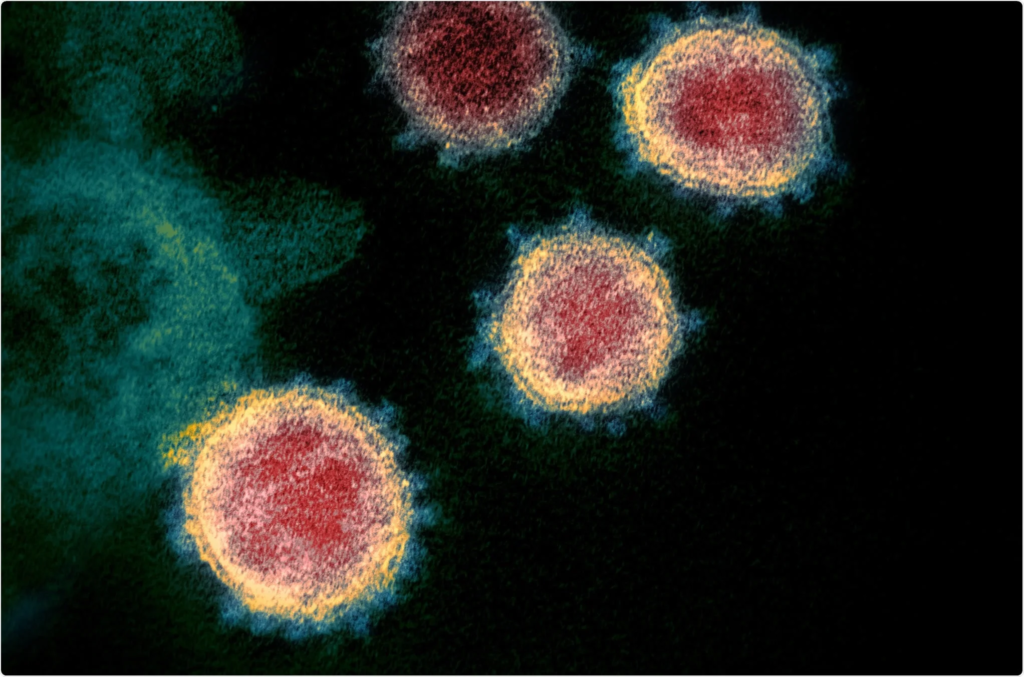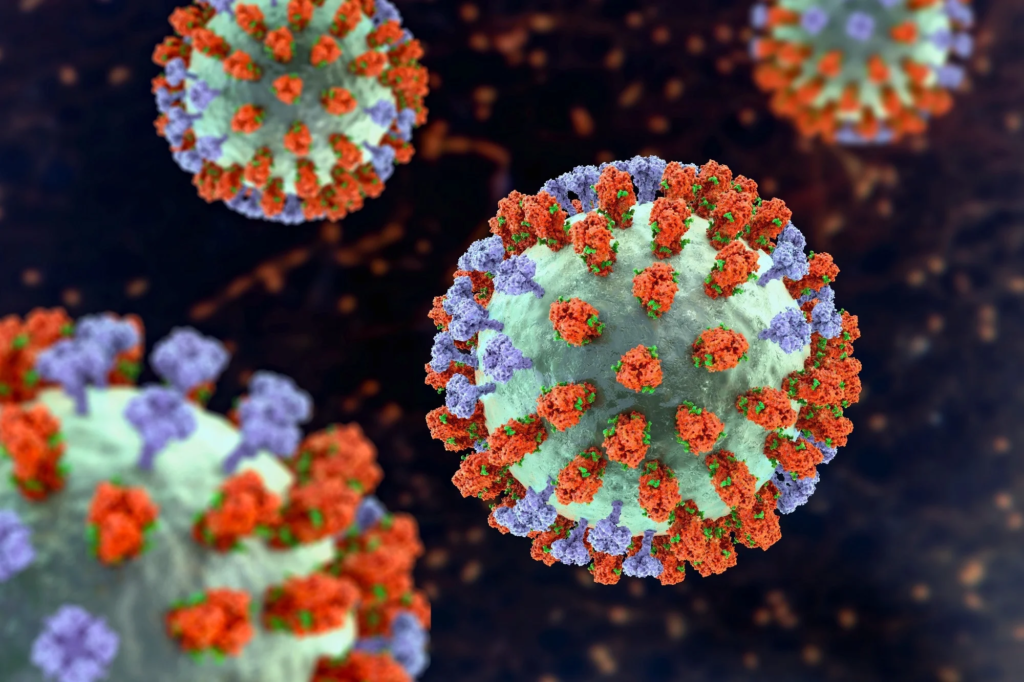
COVID diarrhoea, the illness caused by the SARS-CoV-2 virus, is primarily known for its respiratory symptoms like cough, fever, and shortness of breath. But for some people, the battle against the virus unfolds in a surprising arena – the digestive system. Diarrhea, characterized by loose, watery stools, can be a less-talked-about but significant symptom of COVID-19.
This article dives into the world of “COVID diarrhoea,” addressing common concerns and questions people have been searching for online.
Is Diarrhea a COVID-19 Symptom?
Absolutely. While respiratory issues take centre stage, research suggests that around 1 in 5 people who test positive for COVID-19 experience at least one gastrointestinal symptom, with diarrhoea being the most frequent. This percentage jumps to a concerning 25.9% among hospitalized COVID-19 patients.
So, if you’re experiencing diarrhoea alongside a fever or cough, it’s a good idea to get tested for COVID-19.
Why Does COVID-19 Cause Diarrhea?

The exact reason behind COVID diarrhoea remains under investigation, but a few theories are gaining traction:
- Direct Viral Attack: The SARS-CoV-2 virus can infect cells beyond the respiratory tract, including those lining the digestive system. This viral invasion disrupts the normal digestive process, leading to inflammation and diarrhoea.
- Immune Response: The body’s immune system mounts a powerful defence against the virus, and sometimes this hyper-response can unintentionally damage healthy gut tissues, leading to loose stools.
- Medications: Certain medications used to treat COVID-19 can have diarrhoea as a side effect.
What are the Characteristics of COVID-19 Diarrhea?
Here’s a breakdown of what to expect if you’re experiencing COVID-related diarrhoea:
- Frequency: Diarrhea can occur several times a day, but it typically doesn’t last longer than 5 days.
- Consistency: The stool tends to be watery and loose, with a consistency ranging from mushy to completely liquid.
- Accompanying Symptoms: Nausea, vomiting, and abdominal cramps often accompany COVID diarrhoea.
It’s crucial to differentiate COVID-19 diarrhoea from other causes like food poisoning. Here are some red flags that warrant immediate medical attention:
- Bloody stools: The presence of blood in your stool suggests a more serious condition and requires a doctor’s evaluation.
- Severe abdominal pain: Extreme pain can indicate complications beyond simple diarrhoea.
- Dehydration: Diarrhea can lead to rapid fluid loss. Signs of dehydration include dizziness, fatigue, and infrequent urination.
How to Manage COVID-19 Diarrhea at Home
If you’re experiencing mild COVID diarrhoea, here are some steps you can take to manage it at home:
- Hydration is Key: Diarrhea causes fluid loss, so staying hydrated is essential. Drink plenty of clear liquids like water, broth, or electrolyte solutions. Avoid sugary drinks and caffeine, as these can worsen diarrhoea.
- BRAT Diet: The BRAT diet (Bananas, Rice, Applesauce, and Toast) is a bland diet that’s easy on the digestive system. Stick to these foods until your symptoms improve.
- Over-the-counter Medications: Consider using over-the-counter medications like loperamide (Imodium) to help slow down stool frequency. However, consult your doctor before using any medication if you have underlying health conditions.
- Probiotics: Some studies suggest that probiotics may help shorten the duration of diarrhoea [4]. Talk to your doctor about incorporating probiotic supplements into your routine.
- Plenty of Rest: Your body needs its energy to fight the virus. Get adequate rest to allow your immune system to function optimally.
When to Seek Medical Attention
While most cases of COVID diarrhoea resolve on their own within a few days, there are situations where seeking medical attention is crucial:
- Severe or persistent diarrhoea: If your diarrhoea lasts longer than a week or becomes severe, consult your doctor.
- Dehydration: Signs like dizziness, fatigue, and infrequent urination indicate dehydration and require medical intervention.
- Bloody stools or severe abdominal pain: These symptoms suggest a more serious condition and require immediate medical attention.
- Underlying health conditions: If you have any underlying health conditions, like inflammatory bowel disease (IBD), it’s essential to seek medical advice for managing diarrhoea.
FAQs
Q. Is diarrhoea a common symptom of COVID-19?
Yes, diarrhoea can be a symptom of COVID-19, affecting around 1 in 5 people who test positive [WebMD]. It might even be one of the first signs you experience [Healthline].
Q. What does COVID diarrhoea feel like?
It often shows up as loose, watery stools, but some people experience mushy or soft stool [Healthline]. Be aware that dehydration is a risk with diarrhoea, so staying hydrated is crucial.
Q. How long does COVID diarrhoea typically last?
The good news is, COVID diarrhea usually resolves itself within 5 days [WebMD].
Q. What’s the difference between COVID diarrhoea and other causes of diarrhoea?
While COVID can cause diarrhoea, it’s important to remember other culprits exist, like food poisoning or a stomach bug. Unlike COVID, these might not involve respiratory symptoms like fever or cough [Health].
Q. When should I see a doctor about COVID diarrhoea?
If your diarrhoea is severe, lasts longer than 2 days, or is accompanied by bloody stool, intense abdominal pain, or frequent vomiting, consult a healthcare professional [Ada Health].
Q. How can I manage COVID diarrhoea at home?
Here are some tips to find relief:
- Hydration is key: Drink plenty of fluids like water, clear broth, or electrolyte drinks to avoid dehydration [WebMD].
- Bland diet: Opt for easily digestible foods like toast, rice, applesauce, or bananas [Healthline].
- Over-the-counter meds: Consider medications to reduce diarrhoea or bloating, but consult your doctor first [Healthline].
Q. Can I take medications for my usual diarrhoea if I suspect COVID?
It’s always best to talk to your doctor before taking any medications, especially if you suspect COVID-19.
Q. How can I prevent the spread of COVID diarrhoea?
Frequent handwashing, especially after using the restroom, is essential. Additionally, disinfect surfaces regularly and avoid close contact with others while experiencing symptoms.
Remember: This information is for general knowledge only and doesn’t substitute for professional medical advice. If you’re concerned about COVID-19 diarrhoea, consult your healthcare provider for a proper diagnosis and personalized treatment plan.
To read more, Click here


